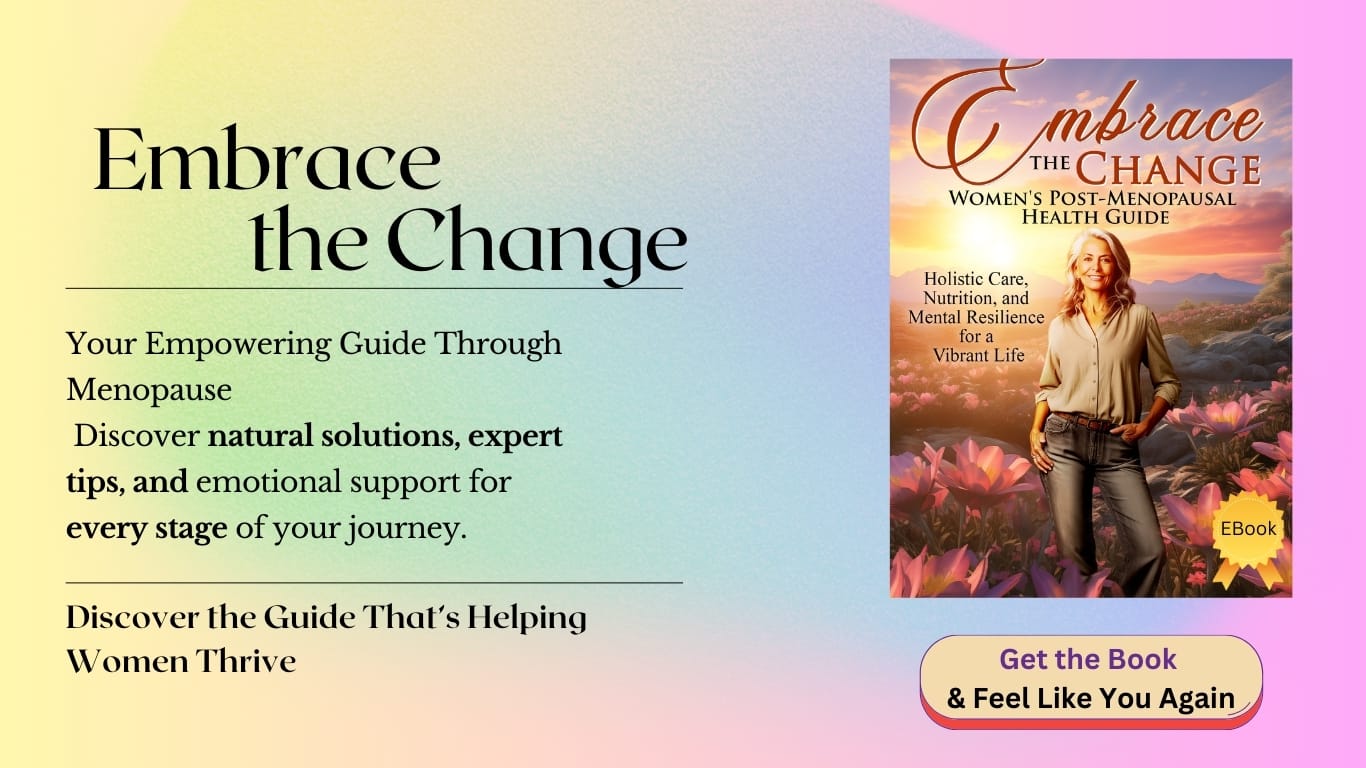The Art of Saying No: Setting Boundaries in Midlife
In midlife, saying “no” isn’t selfish—it’s survival. Learn how setting clear boundaries protects your emotional and physical well-being, helps you balance responsibilities, and empowers you to reclaim your time without guilt.

In today's world, learning to say no and set boundaries is key, more so for women in midlife. Balancing family, work, and personal dreams can be tough. Many women take on too much, leading to burnout and losing respect for themselves.
It's vital to keep well-being and self-respect by setting clear limits. This helps keep both emotional and physical health in check.

Key Takeaways
- Midlife empowerment involves mastering the art of saying no.
- Setting boundaries in midlife without guilt is essential for well-being.
- Balancing family, career, and personal goals is often overwhelming.
- People-pleasing behaviors can lead to exhaustion.
- Establishing firm boundaries is key to maintaining emotional and physical health.
The Importance of Setting Boundaries in Midlife
As we move through midlife, setting healthy boundaries is key. It's not just about being polite; it's vital for our emotional and physical health. Boundaries help us handle stress and improve our life quality, whether at work or in personal life.

Why Boundaries Matter More Than Ever
In midlife, we face more responsibilities, like work and family duties. It's important to set clear boundaries to avoid burnout. By focusing on self-care in midlife, we can do our jobs and take care of our families without losing ourselves.
Emotional and Physical Health Implications
Without healthy boundaries, we're open to chronic stress. This can lead to health issues like high blood pressure and a weak immune system. Setting boundaries also boosts our emotional well-being by allowing us to care for ourselves and grow. This can lower the risk of stress-related illnesses and make us happier overall.
| Benefit | Description |
|---|---|
| Reduced Stress | Clear boundaries minimize the feeling of being overwhelmed. |
| Improved Mental Health | More time for self-care in midlife leads to increased emotional stability. |
| Better Relationships | Healthy boundaries foster respect and understanding in personal connections. |
Common Challenges of Saying No in Midlife
Midlife brings many roles and duties, making saying no hard. The need to keep peace in work and family life is huge. This can make people put others first, leading to guilt and fear of disagreement.
To get past these obstacles, you need good communication and assertiveness. Learning these skills helps you set boundaries without shame. It's key to share your needs and make sure they're heard and respected.

- Workplace Dynamics: Balancing work and personal life without feeling too much.
- Family Roles: Taking care of yourself while doing family duties well.
- Social Expectations: Handling what society expects and your values without harming yourself.
By facing these challenges and improving communication, midlife folks can do better. This change is vital for a healthier, more balanced life, without too much guilt.
Why Midlife Women Struggle with Boundaries
Setting boundaries can be tough for women in midlife. For a long time, society has expected women to take care of others first. This makes it hard for them to focus on themselves and their needs.
Social and Cultural Expectations
Women in midlife have always been taught to put others first. This includes family, friends, and work. It's hard for them to think about their own needs because they've always put others first.
People-Pleasing Behaviors
Trying to please everyone is a big challenge for women in midlife. They often forget about their own needs to get approval from others. This stops them from growing and taking care of themselves.
The Art of Saying No: Setting Boundaries in Midlife Without Guilt
Learning to set guilt-free boundaries in midlife is empowering. It helps you protect your well-being without feeling guilty. Understanding how to say no without guilt is key to a balanced life. Here are some tips to help you achieve this balance.
Practical Tips for Overcoming Guilt
Start by recognizing the importance of your needs. When asked for something, thank them for thinking of you. Then, explain your current priorities. For instance, say, “I appreciate you thinking of me, but I’m currently focused on other commitments.”
This keeps your response positive and respectful. If possible, suggest alternatives. Propose another person or a different time. This shows you care without overloading yourself. You maintain guilt-free boundaries while being helpful.
Embracing Assertiveness
Assertiveness is key in setting boundaries. Use clear, direct language to express your decisions. Avoid vague answers like, “Maybe,” or, “I’ll think about it.” Instead, say, “I’m unable to help with this. Thank you for understanding.”
Being assertive means understanding that saying no is not selfish. It's a sign of self-respect, recognizing your limits. Reflecting on your reasons for setting boundaries boosts your confidence. This makes saying no easier and less scary.
Remember, being assertive values your time and energy. It helps you focus on what truly matters to you.
Effective Communication in Midlife
Effective communication in midlife is key for healthy relationships and well-being. This life stage comes with its own set of challenges. But, using smart communication strategies can help overcome these hurdles.
Using Positive Language
Positive language is a vital part of effective communication. It means focusing on what you can do, not what you can't. Instead of saying "I can't help with that," say "I can help with this part but not the whole thing." This makes your message more welcome and shows you're willing to help within your limits.
Expressing Gratitude and Honesty
Gratitude and honesty are also critical in effective communication. When you can't say yes to a request, start by thanking the person for thinking of you. Say something like, "I appreciate you considering me for this," and then explain why you can't do it. This shows respect and keeps your boundaries clear.
Being honest doesn't mean being rude. It's about being clear yet kind. Good communication is about being assertive but also empathetic. This way, you can stand by your choices while respecting others' feelings.
Setting Boundaries in Relationships
Creating midlife boundaries in relationships is key for balance and well-being. It's about clear talk and being firm yet flexible. This way, you meet your needs without losing important connections.
Balancing Family Commitments
With family, setting boundaries means finding a balance. You decide what activities you can do and keep time for yourself. This helps protect your personal space and lowers stress.
Managing Friendships
In friendships, it's vital to share your needs openly. This helps avoid taking on too much. Talking openly about what you can do helps everyone feel respected and valued.
Workplace Dynamics
In work, setting boundaries is key to managing your load and avoiding burnout. You might set specific work hours or say no to tasks that are too much. This leads to a better work-life balance and job happiness.
| Aspect | Action Steps | Benefits |
|---|---|---|
| Family | Negotiate activities, protect self-care time | Reduced stress, better personal care |
| Friendships | Honest communication, set realistic expectations | Mutual respect, avoids overcommitment |
| Workplace | Define work hours, manage capacity | Better work-life balance, enhanced satisfaction |
How to Say No Without Feeling Guilty
Learning how to say no and setting boundaries is key in midlife. At this time, we face more demands on our time and energy. Yet, it's also when we must focus on our well-being more than ever.
To say no without guilt, first understand the other person's needs. Then, be clear about your own limits. This shows you care without sacrificing your own values. It's a way to respect both sides.
Setting guilt-free boundaries means clearly sharing your limits. A simple, direct answer about your priorities is enough. This shows respect for yourself and your commitments.
| Scenario | Approach |
|---|---|
| Family Requests | Acknowledge their needs and outline your commitments |
| Workplace Demands | Politely decline while explaining your current workload |
| Social Invitations | Thank them for the invite, explain your need for alone time |
Using these strategies, you can say no effectively. This keeps your emotional and physical health in check. Midlife can then be a time of growth and happiness, not guilt and exhaustion.

Assertiveness in Midlife
Building assertiveness in midlife means gaining the confidence to speak up. It's about expressing your needs and wants clearly. This is important because it helps you avoid people-pleasing, which can hold you back.
Learning to be assertive can help you set and keep personal boundaries well. It's about being firm but also respectful. Role-playing and self-reflection are great ways to learn this skill.
Using these methods can make your life more balanced and fulfilling. It lets you communicate your needs better. Being assertive in midlife also earns you more respect from others. It helps in both work and personal life.
Midlife Boundary Setting Tips
Setting boundaries in midlife starts with small steps. Begin with minor boundaries to build confidence. The positive results from these efforts will help you tackle bigger challenges later.
Start Small and Build Confidence
Start with small, achievable goals. Saying no to a minor request or an extra task at work is a good start. These small wins boost your confidence.
Practice Makes Perfect
Consistency is key in setting boundaries. Regular practice makes it easier. Soon, you'll find it natural to set and keep boundaries, ensuring your needs are met.
Saying No Without Apologizing
Saying no without guilt is key for those who value *self-care*. How we say no can greatly affect how it's received and how we feel about it. It's all about the way we phrase our refusals.
Language and Phrasing Techniques
Using clear and strong language is essential when saying no. Instead of "I can't," say "I choose not to" or "I prefer not to." This shows you're in control, which is part of *self-care*. Also, explaining why you're saying no makes your decision sound more thoughtful.
Here are some phrases to help you say no without guilt:
- “I’m unable to commit to this right now.”
- “I appreciate the offer, but I have to decline.”
- “I’m focusing on something different at the moment.”
- “That doesn’t work for me, but thanks for thinking of me.”
Start practicing these phrases in small ways. Soon, saying no without guilt will become easy. It helps you protect your boundaries and improve your *self-care*. Remember, saying no is about choosing what's best for you, not trying to please everyone.
Boundary Setting for Self-Care
Setting boundaries is key to self-care in midlife. It means knowing your limits and focusing on your well-being. Clear boundaries help keep your mental health strong and manage your emotional health well.
Prioritizing Personal Needs
Knowing and respecting your needs is vital for self-care in midlife. It's important to say no to things that don't fit your values or recovery goals. This keeps your mental health first, leading to a more balanced life.
Managing Emotional Energy
Using your emotional energy wisely is part of setting boundaries. Check how your daily activities and interactions affect your emotional health. This helps prevent burnout and keeps your personal and work life in balance.
| Boundary Setting Strategies | Benefits |
|---|---|
| Evaluating Commitments | Reduces stress and anxiety |
| Declining Misaligned Activities | Preserves time for self-care |
| Allocating Emotional Energy | Improves mental clarity and focus |
Real-Life Stories: Midlife Women Who Mastered Saying No
Midlife women often say "yes" to everyone but themselves. But, stories of those who say "no" are powerful. They show the importance of setting boundaries and changing lives for the better.
I had always put others before myself, juggling countless responsibilities at home and work. Learning to say 'no' was liberating and transformed my relationship with my own needs.
Many midlife women find relief and freedom when they set boundaries. Liz Murray, from "Breaking Night," says saying no helped her grow personally. She felt more satisfied and well.
Oprah Winfrey's story is a strong example of empowerment. She talks about how saying no helped her keep her mental health and reach her goals. Her story inspires many midlife women.
These stories show that saying no is not selfish. It's a powerful step towards a more fulfilling life. It's about taking care of yourself and setting boundaries.
Conclusion
Learning to say no and set boundaries is key for midlife empowerment. We've seen how important boundaries are for our health. They help us in our personal and work lives.
Saying no without feeling guilty makes midlife more real and fulfilling. It helps us live in line with our values and goals. This builds self-respect and empowerment.
In short, setting boundaries is about standing up for ourselves. It's about living a life that truly reflects our dreams. Midlife can then be a time of real empowerment, better health, and self-respect.
FAQ
Why are boundaries important in midlife?
Boundaries in midlife are key for handling many tasks and avoiding burnout. They keep your emotional and physical health in check, lower stress, and support personal growth and self-care.
What are the emotional and physical health implications of not setting boundaries?
Without boundaries, stress-related illnesses, fatigue, and emotional exhaustion rise. This can lead to burnout and chronic health problems, harming your overall well-being and happiness.
Why do midlife individuals find it hard to say no?
Midlife folks often struggle with many roles and duties, making it tough to focus on themselves. They fear conflict and upsetting others, leading to people-pleasing.
How do social and cultural expectations impact midlife women in setting boundaries?
Women in midlife face pressure to put others first, making setting boundaries seem selfish. This guilt makes it hard to prioritize their own needs.
What practical tips can help overcome guilt when setting boundaries?
To beat guilt, say thank you for the request and explain why you can't do it. Use positive words and suggest other options when you can, showing respect for both sides.
How can one embrace assertiveness in midlife?
To be assertive, know your needs and speak up for them. Reflect on yourself, practice scenarios, and affirm your communication skills to become more assertive.
How does positive language contribute to effective communication?
Positive language shows respect and thoughtfulness, making saying no seem kind. It keeps relationships strong and respects your boundaries while being assertive.
Why is expressing gratitude and honesty important when setting boundaries?
Saying thank you shows you value the request and respect the person. Being honest about your limits builds trust and reduces resentment.
How can midlife individuals balance family commitments and self-care?
Find a balance by negotiating family activities and setting time for self-care. Talk openly with family about your needs and boundaries.
How should one manage friendships to avoid overcommitment?
Be clear about your needs and limits with friends. Be honest about what you can and can't do to build mutual respect and understanding.
What strategies can help set boundaries in the workplace?
Define your work limits, delegate tasks, and share your workload with colleagues and bosses. This helps manage stress and achieve a better work-life balance.
How can one say no without feeling guilty?
Acknowledge the request's value and then prioritize your health and commitments. Clearly stand by your limits without needing to justify them to respect yourself.
What is the significance of assertiveness in midlife?
Assertiveness lets you express your needs without sacrificing yourself. It helps you avoid people-pleasing and keeps your self-respect and relationships healthy.
How can one start setting boundaries with confidence?
Begin with small boundaries and see the positive effects. Gradually increase your boundaries as you grow more confident and skilled through practice.
What language and phrasing techniques help in saying no without apologizing?
Use clear statements that show your personal choice. Focus on your values, not external pressures. This shows you made a thoughtful decision, reducing the need to apologize.
Why is boundary setting considered self-care?
Setting boundaries honors your personal needs and limits. It wisely manages your emotional energy, protecting your mental and physical health, and allows for meaningful self-care.
How do real-life stories of midlife women mastering boundaries inspire others?
These stories share challenges and successes in setting boundaries. They show how it can transform your life, motivating others to prioritize their needs and navigate midlife with confidence.
